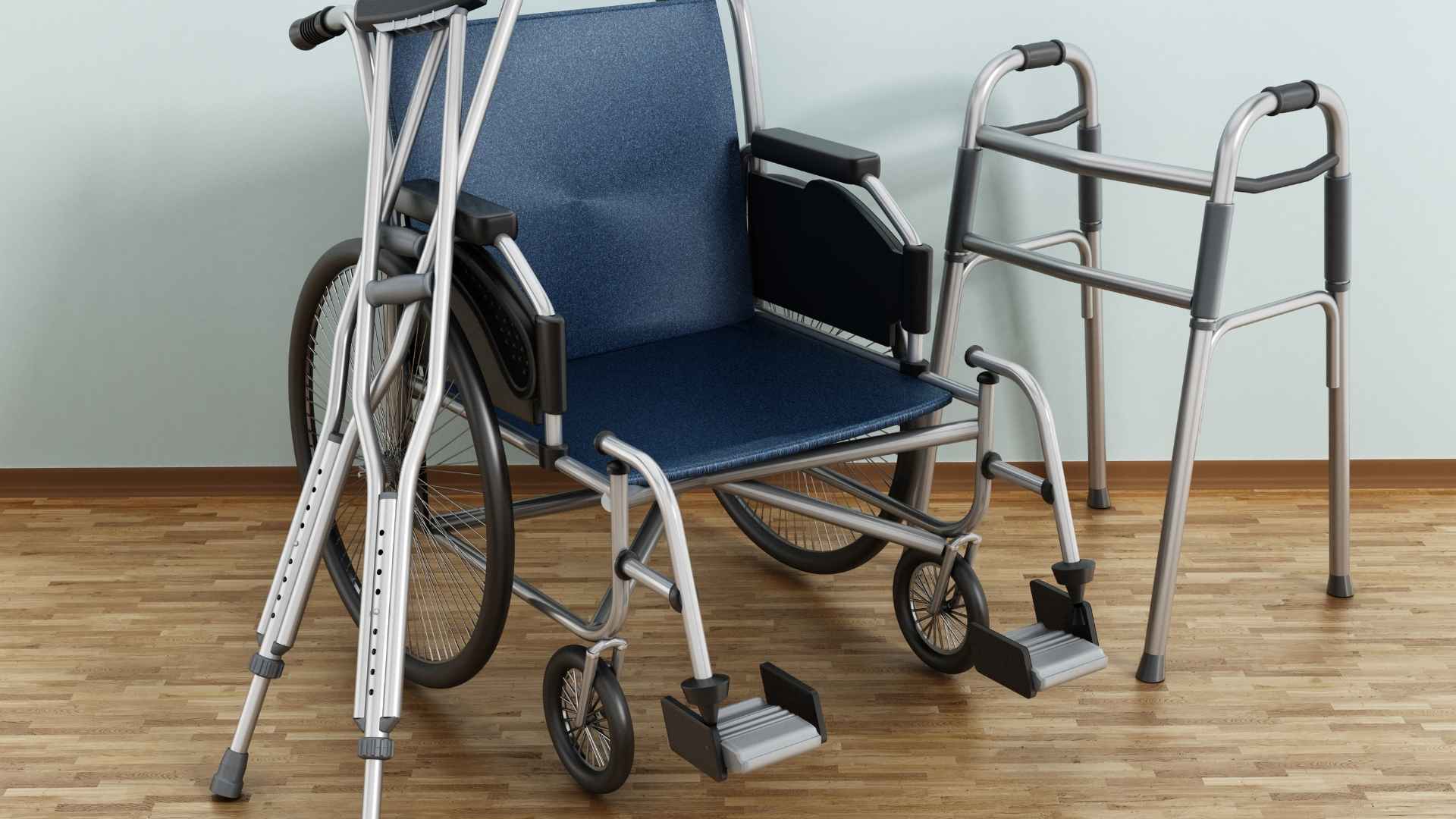Safety on a motorcycle is of the utmost importance. This protective gear can help protect you from devastating accidents and catastrophic injuries, but what does the law say about their use? Understanding Idaho’s motorcycle helmet laws is crucial for all passengers or riders.
Many people who ride their bikes safely and do everything possible to share the road may still wind up in a serious motorcycle accident. If this happened to you and you need clarity on your legal rights, now is the time to speak with a personal injury lawyer familiar with Idaho motorcycle helmet laws.
If you believe you’re entitled to compensation for your injuries, an Idaho motorcycle accident lawyer may be able to help. They can explain Idaho’s motorcycle accident laws and how they may affect your case. Continue reading to learn more.
Does Idaho Have a Helmet Law?
Yes, Idaho does have a helmet law. However, not every person riding or operating a motorcycle is required to wear helmets. Under Idaho law, riders under the age of 18 must wear helmets anytime they’re operating a motorcycle. This also applies to motorbikes, ATVs, and UTV equipment.
A Helmet Could Protect Your Health and Your Rights
Even if you’re not legally required to wear your helmet on your motorcycle in Idaho, it’s a good idea to do so to protect your safety and rights in the event of an accident. When pursuing compensation for your injuries following a motorcycle crash, the other party or insurance company may argue that you are partly at fault for your injuries if you were not wearing a helmet at the time of the crash.
Do You Have to Wear a Motorcycle Helmet in Idaho?
As stated, helmets are not required for drivers over 18 or for those situations in which the motorcycle is ridden or operated for agriculture purposes or on private property, per Idaho Statute § 49-666. Anyone under the age of 18, however, is required under Idaho motorcycle helmet law to wear a helmet any time they’re operating the bike.
Wearing a Helmet Could Save Your Life
Beyond the ramifications of violating a motorcycle law or protecting your rights to compensation, helmet use has been shown to save lives. Wearing a helmet on your motorcycle is one of the best ways to prevent critical injury or death. Based on data collected by the National Highway Traffic and Safety Administration (NHTSA) as reported by the National Safety Council (NSC), using a helmet is 37% effective in preventing fatal injuries for riders and 41% for passengers.
Penalties for Violating Idaho Helmet Laws
Laws in Idaho explain when someone must wear a motorcycle helmet based on age, but there are no specific penalties in Idaho statutes for riding on or driving a motorcycle without a helmet. You may still be subjected to a fine for going without a helmet, especially if you are under age 18, depending on the local laws.
Also, you may face challenges from the insurance companies if you rode without a helmet and suffered head injuries in a motorcycle accident. They could claim that by choosing not to wear a helmet, you contributed to your own injuries.

It’s free to speak with us and learn the value of your case today.
Call Us NowBenefits of Wearing a Motorcycle Helmet
Even though you may not legally be required to wear a motorcycle helmet in Idaho if you are over the age of 18, it is still a good idea to wear one to protect yourself in the event of an accident. Many different injuries are connected to the head that a helmet can protect the rider from suffering, such as:
- Concussions
- Skull fractures
- Hemorrhaging
- Facial and jaw injuries
Without a helmet, there is little to no protection for a motorcyclist’s head in the event of an accident. While a passenger or driver in a car has the benefit of a seatbelt, airbags, and the steal and plastic frame of the car, which can all help to shield them from serious injuries, motorcycle riders do not have the same protection.
Your Helmet Can Protect You From a Traumatic Brain Injury
Motorcyclists are likely to sustain a broad range of head, neck, shoulder, leg, internal, and other injuries. One of these could be a traumatic brain injury (TBI), which is damage sustained to the brain due to a sudden, forceful impact. Depending on the severity and nature of the TBI, this injury can be catastrophic and life-changing for a motorcycle rider.
A traumatic brain injury occurs following a blunt blow to the skull. The brain moves with such force that it hits the walls of the skull and suffers injury. If the blow is significant enough to break the skull, secondary damage can result from fragments of the skull causing additional injury to the victim’s brain tissue. In most motorcycle accidents, the victim is thrown from the motorcycle and strikes their head on a nearby object or the pavement.
Anyone who rides on a motorcycle is at a significantly increased risk of suffering a traumatic brain injury. Signs of serious brain injuries include things such as:
- Memory loss
- Serious headache
- Bruising of the eyes
- Loss of consciousness
- Leaking of fluid behind the ears
- Difficulty focusing
- Hearing loss or vision problems
Our motorcycle accident attorneys recommend that when you purchase a helmet, make sure it meets all safety standards set by the U.S. Department of Transportation. The helmet should fit without causing discomfort or shifting position when you move. If you have been in an accident or it is over seven years old, you should replace the helmet.
Can You Sue If You’re Involved in a No-Helmet Motorcycle Accident in Idaho?
If you get into an accident on a motorcycle while not wearing a helmet, this could make things difficult from the perspective of pursuing a personal injury lawsuit. In the event that your case ultimately proceeds to trial against an at-fault driver, the jury may determine that your failure to wear a helmet amounted to some form of negligence, even if you were not violating the helmet laws in Idaho.
If you are attempting to receive fair compensation for head injuries following a motorcycle accident, be aware that a jury may still determine that your decision not to wear a helmet is equal to negligence. Getting support from an Idaho motorcycle accident lawyer could protect you from any wrong assessment of negligence.
Your Degree of Fault Will Affect Your Compensation
Accusations about head injuries when you were not wearing a helmet are important because of Idaho’s comparative negligence law. Under Idaho Statutes § 6-801, even if you were found to be partially at fault for an accident, you might still recover compensation for your injuries.
However, you may only collect compensation if you are found to be less than 50% at fault for the accident. If the jury feels your choice not to wear a helmet contributed to the head injuries you suffered, as long as your percentage of fault is less than 50%, you can still collect compensation. Be aware that your compensation is reduced by your percentage of fault. If the court award is $100,000, and you are 20% at fault, you may only receive $80,000.
Since the determination of fault is vital for naming liable parties, a legal representative with experience in motorcycle accidents and comparative negligence laws can guide you through this legal process.
What to Do After a Motorcycle Accident
The steps you take following a motorcycle accident could have a significant impact on the success of your personal injury claim. However, your health and safety are the priority. Do not place yourself in further harm if you are unable to fulfill any of these recommendations.
Following any motorcycle accident, you should:
- Move to a safe location: You should leave your bike where it is, but if you can, move to the side of the road.
- Check for injuries: Check yourself for any injuries. If you have passengers, check on their well-being. You should also check on the health of the other driver and their occupants.
- Call 911: Let the operator know where you are and your condition. If others need assistance, let the operator know. When law enforcement arrives, find out where you can get a copy of the police report.
- Take pictures and notes: take pictures of the accident scene, your injuries, and the vehicle damage. Record notes on what you remember.
- Exchange information: Collect any contact and insurance information from the other driver. If there are eyewitnesses, ask for their contact information.
- See a doctor as soon as possible: Whether you take an ambulance to the emergency room or schedule a visit with your primary, see a doctor immediately. They can identify any obscured injuries through testing, and it also makes it easier to connect the accident with your injuries, so don’t wait.
In addition to what you should do, you should avoid doing the following:
- Taking any blame for the accident
- Making accusations or giving opinions
- Posting on social media
Finally, you should speak with a personal injury law firm. Most provide accident victims with a free consultation and work on contingency, so you pay nothing unless they win.
Get Help Understanding How Idaho Motorcycle Helmet Laws Influence You
If you’ve recently been hurt in a major motorcycle accident and weren’t wearing a helmet, there’s a lot on the line for your future. You need to ensure you have an Idaho personal injury attorney familiar with the most common issues with motorcycle accidents.
Sargent Law Firm Injury Lawyers knows what it takes to look at each aspect of a motorcycle case to help you put your best foot forward in a legal claim. Contact us today to learn more about protecting your rights in a serious motorcycle accident in Idaho.




